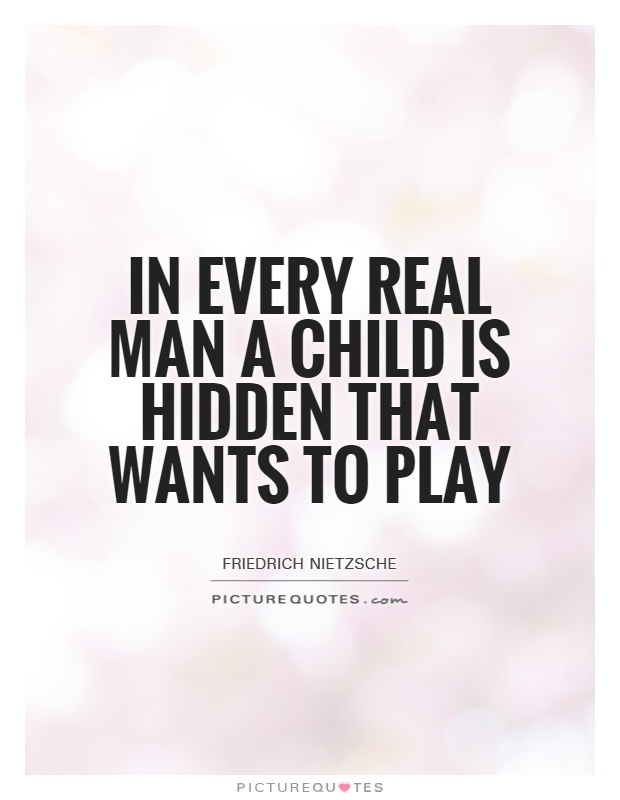In every real man a child is hidden that wants to play

In every real man a child is hidden that wants to play
Friedrich Nietzsche, the renowned German philosopher, is often associated with his profound and controversial ideas on morality, religion, and the human condition. However, one aspect of Nietzsche's philosophy that is often overlooked is his belief in the importance of play and creativity in the life of a real man.Nietzsche famously said, "In every real man a child is hidden that wants to play." This statement reflects Nietzsche's belief in the importance of embracing one's inner childlike spirit in order to live a fulfilling and authentic life. Nietzsche believed that playfulness and creativity were essential components of human nature, and that suppressing these qualities could lead to a life devoid of joy and meaning.
For Nietzsche, play was not just a frivolous pastime, but a fundamental aspect of human existence. He believed that play allowed individuals to express their true selves, explore their creativity, and connect with their innermost desires and passions. In a world that often values conformity and seriousness, Nietzsche saw play as a rebellious act of self-expression and a way to break free from the constraints of societal norms.
Nietzsche also believed that play was essential for personal growth and self-discovery. By engaging in playful activities, individuals could tap into their subconscious desires and fears, confront their inner demons, and ultimately become more self-aware and self-actualized. Nietzsche saw play as a form of therapy, a way to release pent-up emotions and frustrations, and a means of achieving a deeper understanding of oneself and the world.












 Friendship Quotes
Friendship Quotes Love Quotes
Love Quotes Life Quotes
Life Quotes Funny Quotes
Funny Quotes Motivational Quotes
Motivational Quotes Inspirational Quotes
Inspirational Quotes